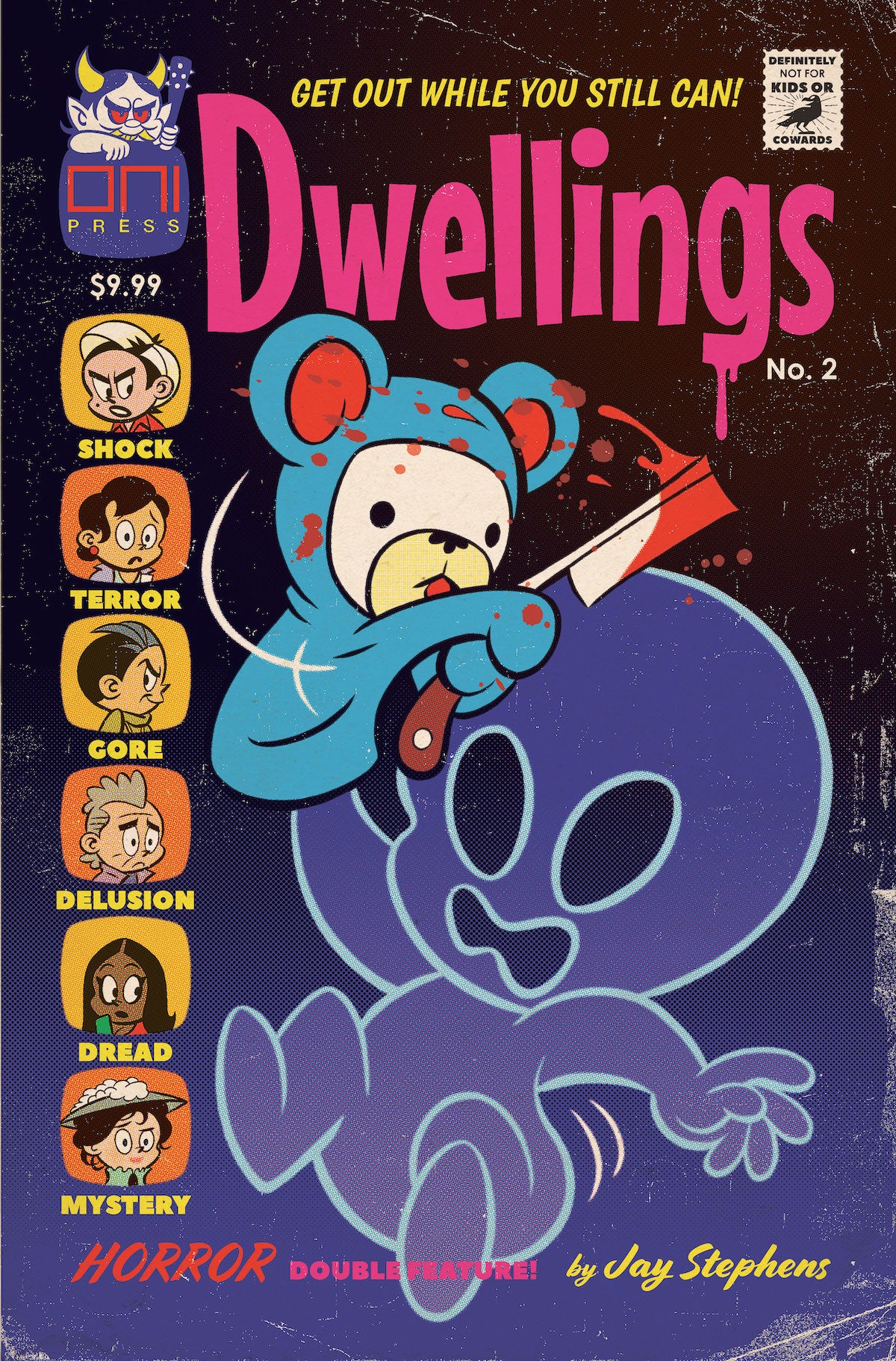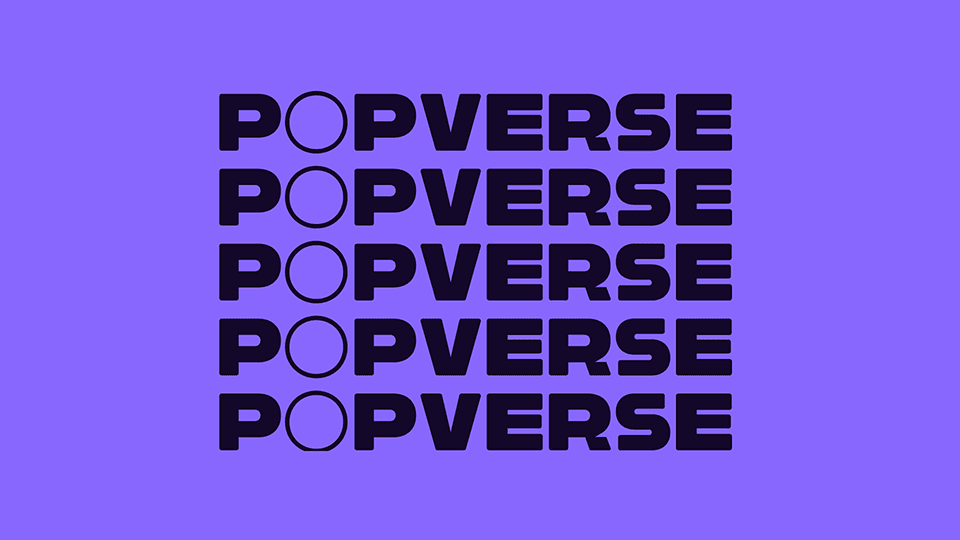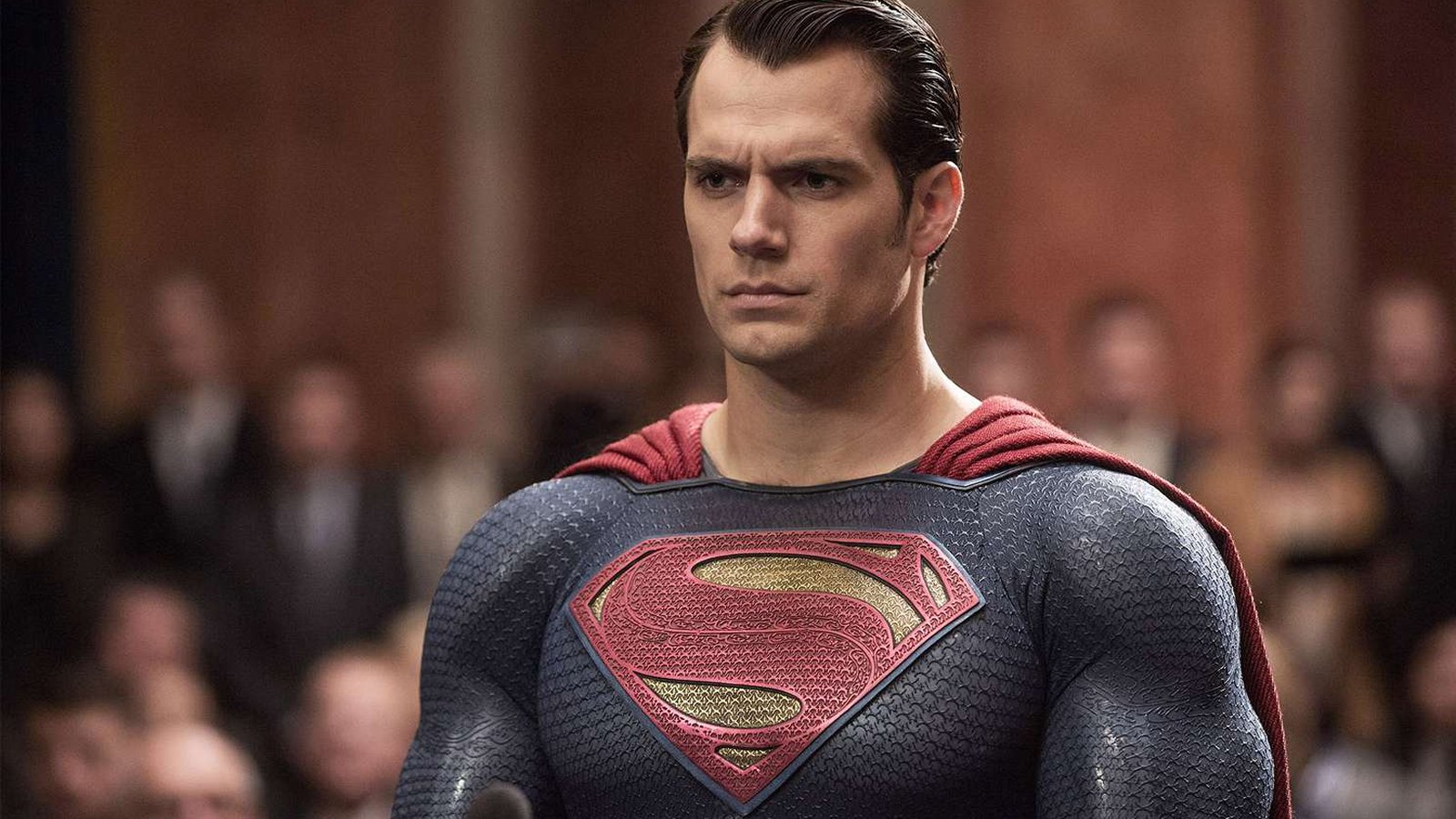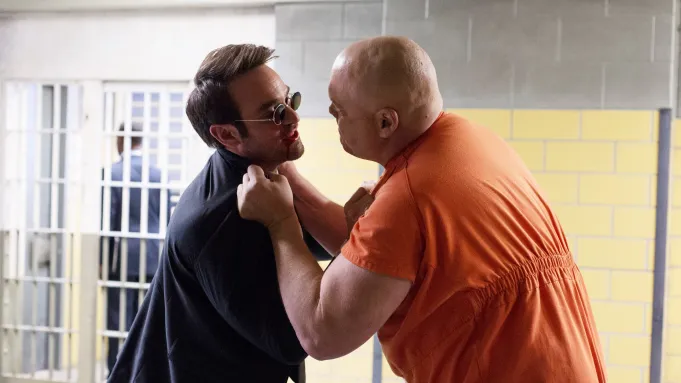If you click on a link and make a purchase we may receive a small commission. Read our editorial policy.
Inside the new Oni Press (and how it's dealing with its past)
Popverse sat down to talk to Oni Press's new publisher Hunter Gorinson and editor-in-chief Sierra Hahn about what Oni Press is in 2023 and moving forward

Portland, Oregon’s Oni Press has been a leading light in independent comic book publishing for decades, responsible for the likes of Scott Pilgrim, Whiteout, The Sixth Gun, Kaijumax, The Tea Dragon Society, and Gender Queer since its 1997 foundation. Last summer, however, was a rough one for the publisher, which is now part of media company Polarity, as a number of high-profile layoffs and departures — including its publisher and EVP of creative and business development — rocked the company and shook the creative community’s faith in Oni’s stability.
In the months since, former BOOM! Studios VP of Business Development Hunter Gorinson has signed on as publisher, with Sierra Hahn joining as editor-in-chief, with the two pushing to help Oni not just find its footing again, but forge a new identity to set it apart in the current comics landscape. Popverse sat down with the two at the recent San Diego Comic-Con 2023 to talk about just what they’re planning.
Spoilers: It’s pretty ambitious.
Popverse: I was saying today that Oni needed a win after last summer, because last summer was hellish for the company. Since then, of course, you've had Xino, which is great. You've had the Jay Stephens book, Dwellings, which looks great. You've got all these announcements which look really exciting, and look like something new, and something like, 'Oh look, we're doing this, and it's good, and it's fun, and it's a different type of thing that isn't outside of what people think of Oni, but is different from what people think of Oni.'

Hunter Gorinson: So I'll give you my experience of what it's been like so far. When I first was approached about the opportunity with Oni, I had a lot of questions, and began picturing the kind of white space it could be. Unfortunately, as someone who reads the Previews catalog for fun (laughs) and is intensely aware of what every other publisher is putting out, I've watched Oni change and evolve over the course of the past decade or so. And I started thinking about the creators in their stable that had always resonated with me.
I remember looking at Previews and going into the store and seeing Nick Cagnetti's Pink Lemonade last year and thinking, 'What an impressive debut for, essentially, a first-time creator that is.' So as I was mulling over what the opportunity could be with Oni and where Oni falls in the overall pantheon of independent comic book publishers, where I think it has a really influential niche and one that's vitally important to the industry at large. And, in turn, I started thinking about the great eras of Oni.
I still haven't read every single Oni book that's been put out over the past 25 years, but there's many, many great ones. And I remember distinctly, as a fan in the late '90s, buying all of the original Oni books off the rack. So Oni Double Feature, Courtney Crumrin, and the Kevin Smith & Jim Mahfood Clerks books – and then drawing Jim Mahfood's Clerks drawings in the back of my notebook in high school over and over and over again. And those books had a profound impact on me. And then, obviously, following through the mid-2000s when Oni did lots of really high-quality genre books like The Sixth Gun, and Joshua Fialkov's The Bunker, and Charles Soule’s Letter 44, et cetera. And then the most recent era of Oni, which is, I think, largely defined by K. O'Neill's Tea Dragon series and those really beautiful younger readers books. And then I started thinking about Oni in the context of the current state of the industry, which is that comics feel boring right now.
They feel very homogenized, and I think a lot of creators or publishers, if you're speaking to them candidly, would say that there's been a lot of self-censorship going on in order to try and pre-package stuff for film or TV. And that has taken some of the renegade energy that comics has, that makes comics exciting, and that makes comics a medium for outsiders, where you can tell stories that can't be told in another medium – it has zapped some of the vitality out of comics over the past 10 years. Don't get me wrong, there's comics being created now at Oni and elsewhere at a higher level than ever before. The craft is there, but something has fallen away to some extent. And I look at where Oni sits, which Oni has always been the slightly counterculture voice in comics, the publisher where you go get stuff that was outside the mainstream, wasn't trying to mimic trends, but was setting the trends.

And I think that's a super-important thing to have in the industry. So I started thinking about owning that context of Oni’s history again, and I got excited about what we could do. And that's like the books that Sierra and I have been working on putting together. Xino was 100% intended to be something in that vein. Dwellings is intended to be something in that vein. The Man From Maybe, which we just announced, is intended to be something in that vein. And then Matt Lesniewski's Faceless and The Family is also intended to be something in that vein. So that's what we're trying to do, is to bring that renegade energy back to comics. If you walked into a comic store 20 years ago, they used to be full of weird stuff! You didn't know if you were come out with an issue of 2000 AD, or a Dave Stevens Rocketeer comic, or a Chris Claremont X-Men issue, which trust me, go back and look at them, they are fucking weird. [Laughs]
Oh, I remember. I'm old. [Laughs]
Gorinson: And that's what I want Oni to be like! I think Oni occupies this really valuable place in the pantheon of comic book publishers, which is slightly left of center. Here's what I can say, and Sierra, feel free to disagree with me: I can't say every book we're going to put out over the next couple years is going to be the number-one smash hit of the year. But what we aee aiming to do stuff that makes you say, 'I couldn't read that at any other publisher.' And everything we do, we're attempting to be, always aiming to be hugely successful, but bottom line, want to do stuff that is interesting, and really, really, really creator-forward, and singular – totally unique. That's what we want to do with Oni.
So, Sierra, did he come to you and say, 'It's okay to do books that are not going to be hugely successful but weird?' Was that the pitch to you?
Sierra Hahn, editor-in-chief: That was a version of the pitch. Absolutely. And was I like, 'Cool. So how do we make sure that they're hugely successful?' Okay, not those words exactly, but I think we have a responsibility to the artists, the storytellers, and a mission that puts the artwork forward and to the forefront of the storytelling that we're doing that says, 'This is a beautiful book, or this is interesting artwork. This has captured my imagination.' You might not know what it is to look at it, but you're compelled and you're drawn to it visually, and then you have a really great story on the inside. So let's allow the artists to speak for themselves with what they're putting on the cover, what they're putting on the page, and then allow the words to enhance that, versus here's a script, and let's have the art enhance the words.
Which is different from a lot of comics these days. A lot of comics today are very writer-driven.
Hahn: I think people forgot about that interconnectedness. I was happy last night at the Eisner's to have some of the people that went up there really talk about, 'This is the artist's win. I can put these words on the page, but it doesn't have a life until this person comes in and they visualize it, and it goes into a whole other level.' And I think it was really important for the writers last night to acknowledge that. So how can we, as a publisher, use that as an internal sort of mandate with our editorial team, with our marketing and sales teams, and then put that forward out to the world? If that's what you believe, what you're doing on the inside, then that's what's going to be expressed out here.
It feels like both of you are very much saying 'Oni's a comics publisher. We're not an entertainment brand. We're not a publisher who happens to do comics.' As if you’re both saying, basically, 'comics are great, and comics are this very specific thing, and this is what we do.'
Hahn: I love that. That's the succinct way of saying it, and I appreciate that.
Gorinson: Sierra very rightfully articulated something that we talk about all the time, which is the best sales and marketing tool you have in comics is great comics, so let's focus on making the best books possible. Which is why it's incredible that Sierra is willing to join us, who's one of the three best editors in comics, hands down, in my opinion. And absolutely the ideal person for this job. But we've talked a lot about the visual power of storytelling and how many great cartoonists have come out of Oni. Bryan Lee O'Malley, Ted Naifeh, Maia Kobabe, Zander Cannon, Sophie Campbell, Steve Lieber, Chris Samnee, Sara Soler, Jim Mahfood, Brian Hurtt, and so many more. Help me out. Sierra, who have you got?

Hahn: K. O'Neill, Brenna Thummler, Ezra Claytan Daniels, Dina Norlund, Maia Kobabe…
Gorinson: It's a long list of cartoonists who launched their careers or furthered their careers at Oni.
That's where I thought you were going when you were saying, 'When I thought of Oni' — because everything you mentioned was people at the start of their careers. Oni has a history of discovering cartoonists. You don't get Scott Pilgrim without Oni doing Lost at Sea first. You don't get Tea Dragon Society without Oni supporting K. O'Neil. Is that something that you guys think is also part of the intrinsic DNA of the company? Is the idea, 'We have to keep finding these new talents'?
Hahn: Yeah. And I think that's evidenced by our fall lineup and special guests this year at San Diego like Nick Cagnetti with Pink Lemonade, Matt Lesniewski with Faceless and The Family. You’ll also see this with newcomers in our graphic novel line up like Austin Paramore and Sarah Bolinger’s Malcom Kid and the Perfect Song on one end and Darek Ballard’s Cartoonshow on the other. But we’re also bringing some of the preeminent artists of their time, like Shaky Kane, into this next presentation of what’s to come for Oni in the next several months.
Gorinson: It was really important to me when we were doing Xino as well that we have a mix of rising creators who've been doing really interesting work. Trust me, the thing about a series like Xino is that writing a four-issue comic or limited series is hard, but writing a 10-page story is the hardest thing that you can do. And the teams on that book have killed it. They killed it. But it was really important to me in putting together that book too, that one of the boxes I think is really important that we always want to check at Oni is having master cartoonists on board. So having Phil Hester in issue one, having David and Maria Lapham in issue two.
I think putting cartoonists at the epicenter of what we do, especially at this really writer-dominant moment in the industry, I do think Oni is a place where we can do really good counter-programming to all of the common wisdom that's percolating. Dwellings is a perfect example. I'm not sure if you saw, but we had to allocate hundreds of copies of Dwellings No. 1. Orders went up at FOC 127%.
As I told the retailers, and all credit to Jay, Jay did a lot of his early work at Oni, I fell in love with Dwellings because I bought his crowdfunded versions while I was still at BOOM! Studios, and I couldn't stop thinking about that book. And then, when I was here, I reached out to Jay, and he was willing to take a gamble on Sierra and myself to help put out a new version of it. But on its face, this is exactly what I said to the retailers at the Diamond presentation yesterday, "Every single thing I'm about to say is not supposed to work. It's a $9.99, 72-page Harvey Comics inspired, horror comic with an 7 R-rated level of violence inprestige format across three issues on a bi-monthly schedule." Every single one of those things is not supposed to work, especially a three-issue bimonthly miniseries. Several words in there that are giant red flags for retailers typically. But we coherently put it together in a package and let the work speak for itself. And that's a perfect example.
There's no other book like that currently being published. It's utterly distinctive, and people responded to it, so much so that, as I said yesterday, they ordered too many, and we're already on a third printing a month before the first issue comes out, which is incredible.
It feels like it's a new company with a history of an old company. It feels like both of you're talking about something that doesn't exist anymore in the comic industry. Honestly, it reminds me of things that were happening in the '80s, where you had a lot of publishers who were like, 'We're just going to make comics. Comics are great.' But you have this history of, 'We have the Oni brand. We are the company that did Whiteout. We're the company that did Scott Pilgrim. We're the company who've done all these works that are really important for the history of comics.' Is there a conflict in your minds about this?
Gorinson: I don't think there's a conflict. As you know, when we first met, I think a lot of people looked at Oni and said, 'Wow, that seems like a real challenge.' And I looked at it and I said, 'I've been here before because I was at Valiant.' You remember. And in 2011, several people told me, 'There is no way Valiant will ever work. You are so wasting your time.' And trust me, there's a lot of differences between Valiant and Oni, do not get me wrong.
There are a lot of differences between Valiant and Oni. [Laughs]
Gorinson: There's a gulf of differences. The difference is this: I was never a Valiant fan before I started working at Valiant. I thought the original Valiant Universe had a good creative pedigree, but they were '90s comics, and they were kind of aggressively uncool. But Oni's fucking cool, man. Oni's one of the great independent comic book publishers, certainly of the 21st century, maybe of the 20th century too, when the company was first founded. There's just so much that's such a great foundation to build upon.
Part of what got me excited, too, given the options that creators have before them with who to publish with these days, I personally feel like a healthy Oni is healthy for the industry. You know what I mean? And that we kind of have a responsibility to keep a publisher with this kind of pedigree and track record not only moving forward but thriving. Publishers will occasionally have midlife crises, and most good publishers get reinvented every 10 or 15 years. How many different incarnations has Image had over the past 30 years? So I'm kind of excited about what we sometimes call Oni 3.0 or 4.0 – , figuring things out like 'What are going to be the legs on the stool of our current incarnation? What are the kind of big swings that we can take in the years ahead?' It's exciting.
Hahn: Adding to that, the legacy, it's our foundation, and the backlist is tremendously important to us. So we're thinking about all the ways in which we can utilize that material, do new additions, bring titles back, celebrate that work, and celebrate the history. You'll start to see that over the next few years–how we want to bring more prominence to the history of the company itself.
Is The Sixth Gun Omnibus a sign of the sort of thing you want to do? Where you're bringing this material back in a new form.
Hahn: Absolutely.

Gorinson: Yeah. Me and Sierra both, as well as our editorial team, are taking a look at what are the Oni books that we loved. This stuff deserves to be in print and on someone's shelf in a way that is either preferred format for a longtime readers, or a great way to introduce it to a new generation. There's an entire generation of comic book readers who would love to discover The Sixth Gun. That’s part of the reason we're excited to be doing the sequel series too, which we're going to do in 2025 with Cullen [Bunn] and Brian [Hurtt].
You talked about Oni 3.0, 4.0 and, 'midlife crisis'. Here's the difficult question: Last summer was rough for Oni. I think it damaged the publisher's relationship with creators. Is that something you guys have been having to address? Is that something that creators have been talking to you about?
Gorinson: Yeah.
How were you addressing it?
Gorinson: I personally sat down, as has Sierra, with dozens of Oni creators over the course of our first hundred days and just had frank and honest conversations. As I said, when this opportunity was presented to me, I went in and I asked a lot of hard questions, and I received what I think were truthful and very transparent answers to them, or else I wouldn't have taken the role. I think the fundamentals of Oni are super sound. And I just went to creators, and we had honest conversations about any concerns they had, what we could do to address them, and what we were going to do going forward. And I think, by and large, those have been very, very successful so far.
Hahn: Yeah. I came in a little bit later than Hunter, obviously, but a lot of that was, yes, there were creators that came to us, but we also made a point of being proactive and reaching out to people and saying, 'We just want to say hi. We want to get to know you, and we are here for your difficult questions.' I think a lot of people just wanted to be heard, wanted to be listened to. They wanted to know that their concerns would be validated by not just Hunter and I, but by Oni at large. And that's hugely valuable to us because we want people excited to be part of the Oni legacy. So we're here to listen, and we have the ability together to make changes pretty quickly and get those needs and questions answered, those needs met, just to make a greater opportunity for the creative community going forward.
I love making comics. I love working with storytellers. I have no interest in creating a space where people can't do their best work. That's not why I've been doing this for 18 years. So it's really just about listening and creating spaces for people to be heard.
Oni, this year, is in a very different space from last year. Where do you want Oni to be next year? San Diego Comic-Con 2024, what do you want to be doing? What do you want to be talking about? What do you want people to say about the company?
Gorinson: So as I've been telling the team, what you're seeing right now with the publishing announcements we've been making, and kind of the direction that Oni's been heading in, we're in ramp-up mode. I was telling the team yesterday, over the course of the next 12 months, I think Dwellings is a good indication, the chassis is going to start to shake a little bit. So I can't say much about things that we can't announce yet.
Not to call our shot too much, but I think 2024 is going to be a fucking banner year for Oni. If we execute half of what we have planned right now, we should call it right now, we should come back to San Diego Comic-Con 2024 and have a chat, and see how you think we've progressed. Because I'm excited to make great comics. I know Sierra's excited to make great comics. We have some truly great, exciting things coming. And I think everyone will be surprised by just how fast and far Oni's come in a short time.
Hahn: Yeah. I think, right now, we're building a dialog and that we're publishing material that's getting people's attention, grabbing their imagination, and driving a conversation about, 'Oh, Oni's here, what are they doing? Where are they going?' And I think, yeah, by this time next year, there'll be a very clear identifier of where we're at and sort of the state of the industry at that point.
Follow Popverse for upcoming event coverage and news
Find out how we conduct our review by reading our review policy
Let Popverse be your tour guide through the wilderness of pop culture
Sign in and let us help you find your new favorite thing.
















Comments
Want to join the discussion? Please activate your account first.
Visit Reedpop ID if you need to resend the confirmation email.